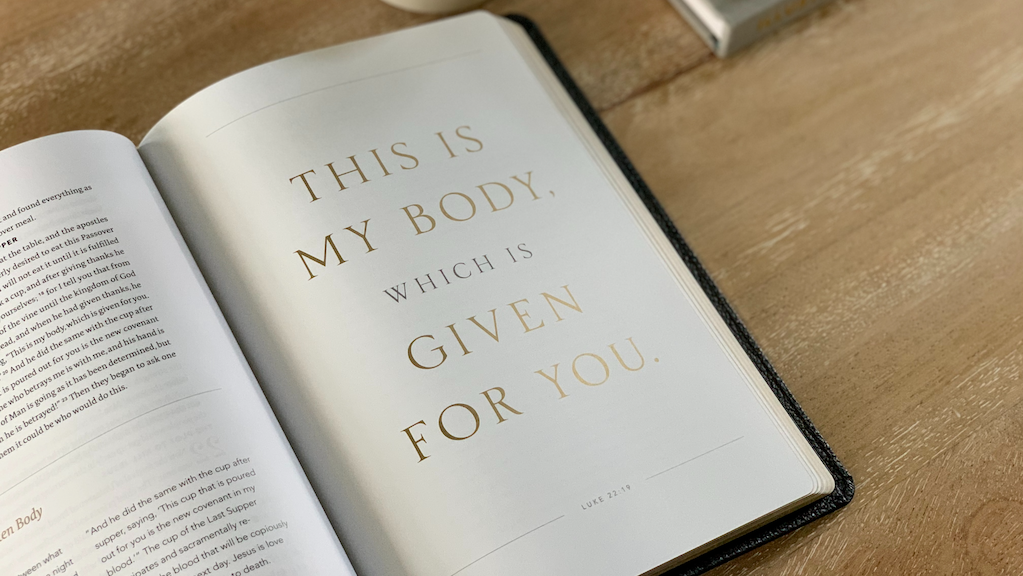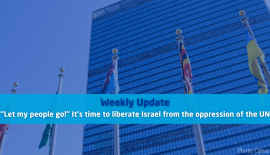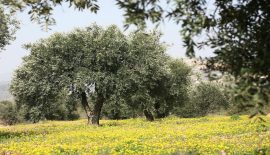The Lord’s Supper and Israel
We all frequently celebrate the Lord’s Supper, or Eucharist, in our Churches. The focus is on our reconciliation with God through the blood of Jesus Christ. When Jesus passes the cup of wine to His disciples, He says: ‘This cup, which is poured out for you, is the new covenant in My blood’ (Luke 22:20). Mentioning the ‘new covenant’, Jesus refers to Jeremiah 31: 31, where the Lord promises He ‘will make a new covenant with the house of Israel and the house of Judah’. This new covenant is effectuated in Jesus’ suffering and death on the cross and His resurrection. The wine in the cup on the evening before His death refers to this new covenant. Jesus is drinking this cup of wine together with His twelve Jewish disciples. Jeremiah and Jesus, when speaking about this new covenant, both emphasise that this new covenant will bring forgiveness of all their sins.
We as Christians may enjoy the blessings of this new covenant with Israel because, through Christ, we are ‘grafted in among them and became partaker with them of the rich root of the olive tree’ (Romans 11:17). During the time before we knew Jesus Christ as our Saviour, we were ‘separate from Christ, excluded from the people of Israel, and strangers to the covenants of the promise, having no hope and without God in the world. But now in Christ Jesus, you who previously were far away have been brought near by the blood of Christ’ (Ephesians 2:12-13). When we celebrate the Lord’s Supper in our Church services, it is important to be aware of our profound connection and relationship with Israel and the Jewish people.
The bread we eat at the Lord’s Supper refers to Jesus Christ’s body that He gave for us: ‘This is My body, which is being given for you; do this in remembrance of Me’ (Luke 22:19). Jesus gave His life, His body and blood, to deliver us from our sins and give us eternal life with Him in His Kingdom. When the people of Israel were delivered from slavery in Egypt, they set out for the promised land. On their journey through the desert, they were fed with manna. When Jesus speaks about that manna, He also explains that the manna referred to His body and Himself: ‘Truly, truly, I say to you, it is not Moses who has given you the bread out of heaven, but it is My Father who gives you the true bread out of heaven. For the bread of God is that which comes down out of heaven and gives life to the world (…) Jesus said to them, “I am the bread of life; the one who comes to Me will not be hungry” (John 6:32-34). It is wonderful to see how the manna in the desert and our bread at the Lord’s Supper both refer in a special way to Christ’s body.
The bread and the wine at the Lord’s Supper also refer to the feast that we may partake in together with our Lord in His future Kingdom. Passing the cup of wine, Jesus said: ‘for I say to you, I will not drink of the fruit of the vine from now on until the kingdom of God comes’ (Luke 22:18). Drinking the wine and eating the bread, we remember what Jesus did for us, and we also look forward to what the Lord will prepare for us. This refers to the wonderful promise in Isaiah 25:6 ‘Now the Lord of armies will prepare a lavish banquet for all peoples on this mountain; a banquet of aged wine, choice pieces with marrow, and refined, aged wine’. The Kingdom and the feast that Isaiah and Jesus refer to will take place ‘at this mountain’. And that is Mount Zion in Jerusalem in Israel. Israel will play a huge role in the Kingdom to come, as Isaiah prophesied: ‘For the law will go out from Zion and the word of the Lord from Jerusalem’ (Isaiah 2:3).
Even at a specifically Christian celebration such as the Lord’s Supper, it is good to be aware of our profound connection and relationship with Israel and the Jewish people. And to express this in our prayers and sermons.






